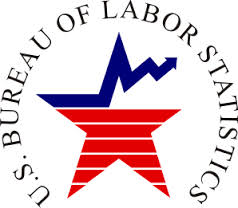Washington, DC…Nonfarm payroll employment increased by 211,000 in April, and the unemployment rate, at 4.4 percent, was little changed. Thus far this year, monthly job gains have averaged 185,000, in line with average monthly job growth in 2016. In April, job gains occurred in leisure and hospitality, health care and social assistance, financial activities, and mining. Leisure and hospitality added 55,000 jobs in April, following little change in March. Employment in food services and drinking places continued to trend up over the month (+26,000) and has increased by 260,000 over the year.

In April, health care and social assistance added 37,000 jobs. Health care employment continued to trend up over the month (+20,000). This is in line with the industry’s average monthly job growth during the first quarter of this year but is below the average gain of 32,000 per month for 2016. Within social assistance, employment in individual and family services increased by 17,000 in April.
Employment in financial activities grew by 19,000 in April, with most of the gain among insurance carriers and related activities (+14,000). Over the year, financial activities has added 173,000 jobs.
In April, mining employment increased by 9,000, mostly in support activities for mining. Since a recent low last October, mining has added 44,000 jobs, with three-fourths of the gain in support activities for mining.
Employment in professional and business services continued to trend up in April (+39,000). Over the year, the industry has added 612,000 jobs.
Employment in other major industries–construction, manufacturing, wholesale trade, retail trade, transportation and warehousing, information, and government–showed little change over the month.
Average hourly earnings of all employees on private nonfarm payrolls increased by 7 cents in April. Over the past 12 months, average hourly earnings have risen by 2.5 percent. From March 2016 to March 2017, the Consumer Price Index for All Urban Consumers (CPI-U) increased by 2.4 percent (on a seasonally adjusted basis).
Turning now to measures from the survey of households, the unemployment rate changed little over the month but, at 4.4 percent, matched the pre-recession low reached in 2007. The number of unemployed persons, at 7.1 million, also changed little in April.
Among the unemployed in April, 1.6 million had been searching for work for 27 weeks or more. These long-term unemployed accounted for 22.6 percent of the total unemployed.
The labor force participation rate, at 62.9 percent, changed little in April and has shown little movement over the past year. The employment-population ratio, at 60.2 percent, was also little changed over the month but was up by 0.5 percentage point since December.
Among employed people, the number working part time for economic reasons, also referred to as involuntary part-time workers, decreased by 281,000 in April to 5.3 million. This measure has continued to trend downward but remains above pre-recession levels.
Among those neither working nor looking for work in April, 1.5 million people were marginally attached to the labor force, 181,000 lower than a year earlier. Discouraged workers, a subset of the marginally attached who believed that no jobs were available for them, numbered 455,000 in April, down by 113,000 from a year earlier. (People who are marginally attached to the labor force had not looked for work in the 4 weeks prior to the survey but wanted a job, were available for work, and had looked for a job within the last 12 months.)
In summary, nonfarm payroll employment increased by 211,000 in April, and the unemployment rate was little changed at 4.4 percent.


